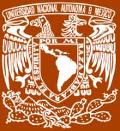|
Boletín de la Sociedad Geológica Mexicana Volumen 67, núm. 3, 2015, p. 367-375 http://dx.doi.org/10.18268/BSGM2015v67n3a1 |
 |
Growth of Bacillus pumilus and Halomonas haloduransin sulfates: prospects for life on Europa
Rocío E. Avendaño1, Lilia Montoya1, Jesús Olmos1, Sandra I. Ramírez1,*
1 Centro de Investigaciones Químicas, Universidad Autónoma del Estado de Morelos. Av. Universidad #1001 Col. Chamilpa, 62209, Cuernavaca, Morelos, México.
* This email address is being protected from spambots. You need JavaScript enabled to view it.
Abstract
The growth of Bacillus pumilus and Halomonas halodurans under different concentrations of NaCl, MgCl2, Na2SO4 and MgSO4was investigated. The objective was to demonstrate whether these cultures have the ability to grow, not only in media enriched with sodium chloride, but also with other salts of astrobiological interest. The importance of this monitoring was to evaluate the fitness of these strains to the hypothetical salt content and composition of extraterrestrial sites, such as the ocean of Europa, one of the satellites of Jupiter.
The mechanism of fitness used by these bacteria was investigated by characterizing the compatible solutes accumulated by each strain. Bacillus pumilus was cultivated at 0.23 M and 0.33 M NaCl (aw of 0.995 and 0.990, respectively) while Halomonas halodurans was cultivated at 0.44 M and 0.89 M NaCl (aw of 0.985 and 0.965, respectively). B. pumilus seems to accumulate principally betaine while H. haloduransaccumulates betaine and glutamate, depending on the salt content of its environment. These results are discussed in the context of the salinity and salt composition of Europa’s ocean and under their implications for the habitability of this Jovian satellite.
Keywords: Water activity, Europa’s habitability, icy satellites, halophiles, compatible solutes.

